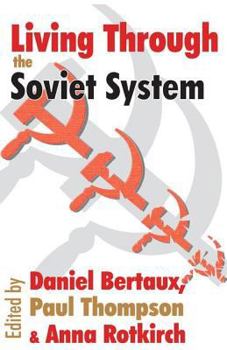Living Through the Soviet System
For a period of over seventy years after the 1917 revolutions in Russia, talking about the past, either political or personal, became dangerous. The situation changed dramatically with the new policy of glasnost at the end of the 1980s. The result was a flood of reminiscence, almost nightly on television, and more formally collected by new Russian oral history groups and also by Western researchers. Daniel Bertaux and Paul Thompson both began collecting...
Format:Paperback
Language:English
ISBN:1412804876
ISBN13:9781412804875
Release Date:January 2005
Publisher:Routledge
Length:286 Pages
Weight:0.90 lbs.
Dimensions:0.7" x 6.7" x 9.1"
Related Subjects
HistoryCustomer Reviews
0 rating





